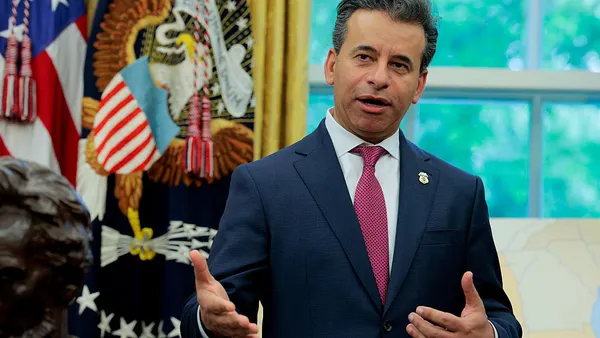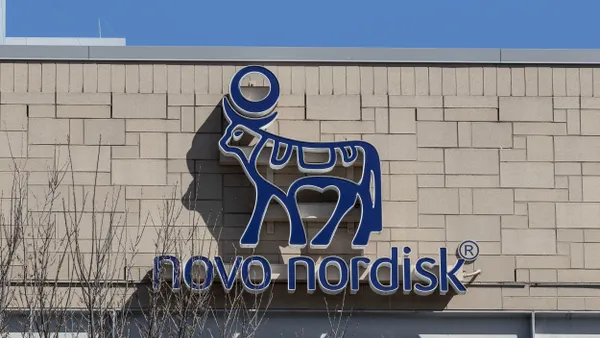Dive Brief:
-
The war between hospitals and pharmaceutical companies over drug prices revved up this week, as PhRMA released an new report accusing hospitals of marking up drug prices by an average of 500%.
-
The PhRMA-commissioned Moran Company report found that about one in six hospitals charge patients and insurers seven times the original price of the medicine, while one in 12 mark up drugs over 1,000%. The AHA called the study an "obvious attempt to divert attention away from a problem of [pharma's] own making: skyrocketing drug prices."
-
Hospitals, meanwhile, are taking matters into their own hands, at least with generics. An Intermountain-led coalition of hospitals that aim to make the copycat drugs more available named former Amgen chief quality officer Martin VanTrieste as CEO on Thursday , officially launching as Civica Rx.
Dive Insight:
The moves are the latest in an ongoing blame game between big pharma, pharmacy benefit managers, insurers and hospitals over high drug costs.
Some of the debate has dealt with the future of the 340B prescription drug program, which requires drugmakers to give discounts on certain outpatient medicines to some hospitals. The American Hospital Association just filed its third challenge to a planned cut to the program for hospitals.
A January analysis from the Health Care Cost Institute pinpointed prescription drug costs as the lead culprit driving health care spending, with the highest cumulative spending growth of any other category. Spending on prescription drugs increased 27.2% between 2012 and 2016, and drug prices grew 25% in the same period.
Faced with figures like these and the ire of lawmakers, PhRMA has fought back aggressively with ads, lobbying and other tactics to justify the price of medications. The lobby also this week released a new "Let’s Talk About Cost" advertising push as part of a campaign stretching back to last year.
The Moran analysis of hospital charges and Medicare claims data found that almost one in five of the 3,792 hospitals studied upcharge patients and insurers for medicine by 700%. A large majority of hospitals asked for more than double the medicine's original cost, and 53% of facilities marked up drugs between 200% and 400%. Just 2% had a markup range under 100% and, on average, hospitals charged 479% of their cost for drugs nationwide.
Amid the intense scrutiny and ongoing drug shortages, big hospitals are wading into the pharmaceutical territory with Civica Rx, the new nonprofit generic drug company created by a group of large provider systems.
Previously known as Project Rx, the initiative was announced in January by Intermountain Healthcare, Ascension, SSM Health and Trinity Health in consultation with the U.S. Department of Veterans Affairs. New members added since then include Catholic Health Initiatives, HCA, Mayo Clinic and Providence St. Joseph Health.
Along with the appointment, Civica Rx announced it has pinpointed 14 — yet unnamed — generic drugs as the initial focus of its efforts. The company will be an FDA-approved manufacturer, though it does not yet know if it will directly make the generics itself or sub-contract to other parties, and expects to have its first products on the market as early as next year, according to a press release.
A study released this week found that the U.S. healthcare system could save billions of dollars if branded drug manufacturers weren't abusing federal programs meant to improve drug safety. Brand name medicines account for 72% of drug spending nationwide, yet only 10% of filled prescriptions, according to a 2016 JAMA report.














